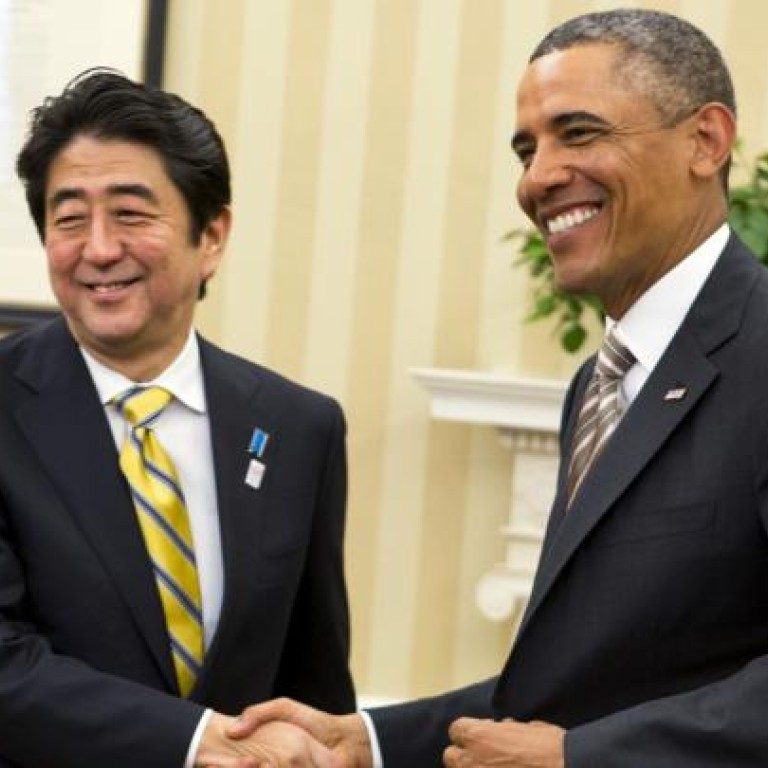
Economy comes first in Obama-Abe meeting
Frank Ching welcomes the overriding message from the much-watched meeting between Obama and Abe: growth is the top priority
The theme of return was very much evident in Japanese Prime Minister Shinzo Abe's visit to the White House. After three years in the political wilderness, the Liberal Democratic Party is now back. And Abe, who served as prime minister from 2006-2007, is again Japan's leader.
Abe is determined to revive the economy. Speaking at the Centre for Strategic and International Studies in Washington DC, Abe said that not only was he personally back as prime minister, but "Japan is back!" "I will bring back a strong Japan, strong enough to do even more good for the betterment of the world," he pledged.
Significantly, both Abe and his host, US President Barack Obama, emphasised the importance of economic recovery.
On the issue of the islands disputed with China, Abe said he told Obama that Tokyo would handle it "in a calm manner" and that he had no desire for escalation. That is good to hear. Hopefully, there will be no more talk of firing warning shots at Chinese aircraft that enter the airspace of islands held by Japan but claimed by China.
That was no doubt what Obama wanted to hear. After all, the US has no desire to be dragged into a war over a bunch of uninhabited rocks in the East China Sea, even though Washington has said the islands are covered by the mutual security treaty with Japan.
Besides, both Washington and Tokyo realise their greatest need now is to revitalise their economies. If that doesn't happen, then the US-Japan alliance - or any American military commitments overseas - may be jeopardised.
Hence, Obama said while meeting the press: "I know that Prime Minister Abe and I both agree that the No 1 priority has to be making sure that we are increasing growth." He did reassure Abe that "you will have a strong partner in the United States throughout your tenure as prime minister".
If Abe was looking for more, he did not show it. Already, at Japan's urging, the US has enacted legislation recognising the Senkaku Islands - known to China as the Diaoyus - as being under Japanese administration. Moreover, after China denied Japan's charge that Chinese warships had threatened a Japanese destroyer and a helicopter by activating weapons-guiding radar, the US, after looking at Japan's evidence, said through the State Department that "we have satisfied ourselves that it does appear to have happened".
While Japan is trying to firm up the US alliance, China is trying just as hard to drive a wedge between the two allies. The official Chinese media has run a number of articles about how Japan is attempting to mislead the US.
The online edition of the official published an article on the day of the Obama-Abe meeting that said Japan "has won the support of the United States by catering to its so-called common values", as though Japan doesn't really share those values. It ended with: "We will just have to wait and see whether the United States will be misled by Japan again."

